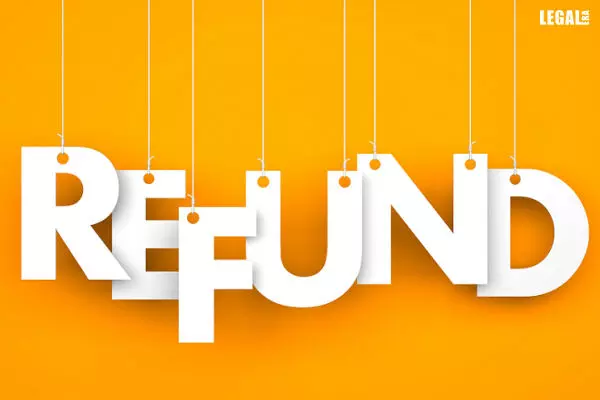- Home
- News
- Articles+
- Aerospace
- Agriculture
- Alternate Dispute Resolution
- Banking and Finance
- Bankruptcy
- Book Review
- Bribery & Corruption
- Commercial Litigation
- Competition Law
- Conference Reports
- Consumer Products
- Contract
- Corporate Governance
- Corporate Law
- Covid-19
- Cryptocurrency
- Cybersecurity
- Data Protection
- Defence
- Digital Economy
- E-commerce
- Employment Law
- Energy and Natural Resources
- Entertainment and Sports Law
- Environmental Law
- FDI
- Food and Beverage
- Health Care
- IBC Diaries
- Insurance Law
- Intellectual Property
- International Law
- Know the Law
- Labour Laws
- Litigation
- Litigation Funding
- Manufacturing
- Mergers & Acquisitions
- NFTs
- Privacy
- Private Equity
- Project Finance
- Real Estate
- Risk and Compliance
- Technology Media and Telecom
- Tributes
- Zoom In
- Take On Board
- In Focus
- Law & Policy and Regulation
- IP & Tech Era
- Viewpoint
- Arbitration & Mediation
- Tax
- Student Corner
- AI
- ESG
- Gaming
- Inclusion & Diversity
- Law Firms
- In-House
- Rankings
- E-Magazine
- Legal Era TV
- Events
- News
- Articles
- Aerospace
- Agriculture
- Alternate Dispute Resolution
- Banking and Finance
- Bankruptcy
- Book Review
- Bribery & Corruption
- Commercial Litigation
- Competition Law
- Conference Reports
- Consumer Products
- Contract
- Corporate Governance
- Corporate Law
- Covid-19
- Cryptocurrency
- Cybersecurity
- Data Protection
- Defence
- Digital Economy
- E-commerce
- Employment Law
- Energy and Natural Resources
- Entertainment and Sports Law
- Environmental Law
- FDI
- Food and Beverage
- Health Care
- IBC Diaries
- Insurance Law
- Intellectual Property
- International Law
- Know the Law
- Labour Laws
- Litigation
- Litigation Funding
- Manufacturing
- Mergers & Acquisitions
- NFTs
- Privacy
- Private Equity
- Project Finance
- Real Estate
- Risk and Compliance
- Technology Media and Telecom
- Tributes
- Zoom In
- Take On Board
- In Focus
- Law & Policy and Regulation
- IP & Tech Era
- Viewpoint
- Arbitration & Mediation
- Tax
- Student Corner
- AI
- ESG
- Gaming
- Inclusion & Diversity
- Law Firms
- In-House
- Rankings
- E-Magazine
- Legal Era TV
- Events
Delhi High Court Rules Taxpayers Entitled to Clarify Refund Application Discrepancies

Delhi High Court Rules Taxpayers Entitled to Clarify Refund Application Discrepancies
In a significant verdict, the Delhi High Court has ruled in favour of M/s Shivbhola Filaments Private Limited (the petitioner), emphasising that refund applications cannot be summarily dismissed merely due to discrepancies, without granting taxpayers the chance to present clarifications.
The petitioner, engaged in the production of Polypropylene Yarn and Polypropylene narrow woven fabric with GST rates of 12 per cent and 5 per cent respectively, encountered an issue related to the inverted tax structure. This predicament arose as the petitioner's raw materials (Granules, Master Batch, Spin Finish Oil) were taxed at 18 per cent, leading to an inability to fully offset input tax payments against the output tax liability. Seeking redress, the petitioner pursued refunds for the period spanning August 2018 to March 2019.
However, these refund requests were declined due to discrepancies in comparison with GSTR 2A returns. In response, the petitioner lodged appeals under Section 107 of the Central Goods and Service Tax Act before the Appellate Authority. These appeals were collectively dismissed uniformly via an Order-in-Appeal dated November 18, 2021.
The Delhi High Court Bench consisting of Justices Vibhu Bakhru and Amit Mahajan noted that although the Appellate Authority had pinpointed issues resulting in the partial denial of refunds, it had neglected to properly evaluate the accurate refund quantum. The panel underscored the impropriety of authorities dismissing refund claims without affording taxpayers the chance to rectify disparities and provide clarifications.
As a result, the Court overturned the Order-in-Appeal dated November 18, 2021, along with the order issued by the Adjudicating Authority on December 31, 2020. The Bench reinstated the petitioner's refund applications and directed the Adjudicating Authority to re-evaluate the appropriate refund sum. The petitioner was granted the opportunity to furnish explanations and rectify any inconsistencies.



